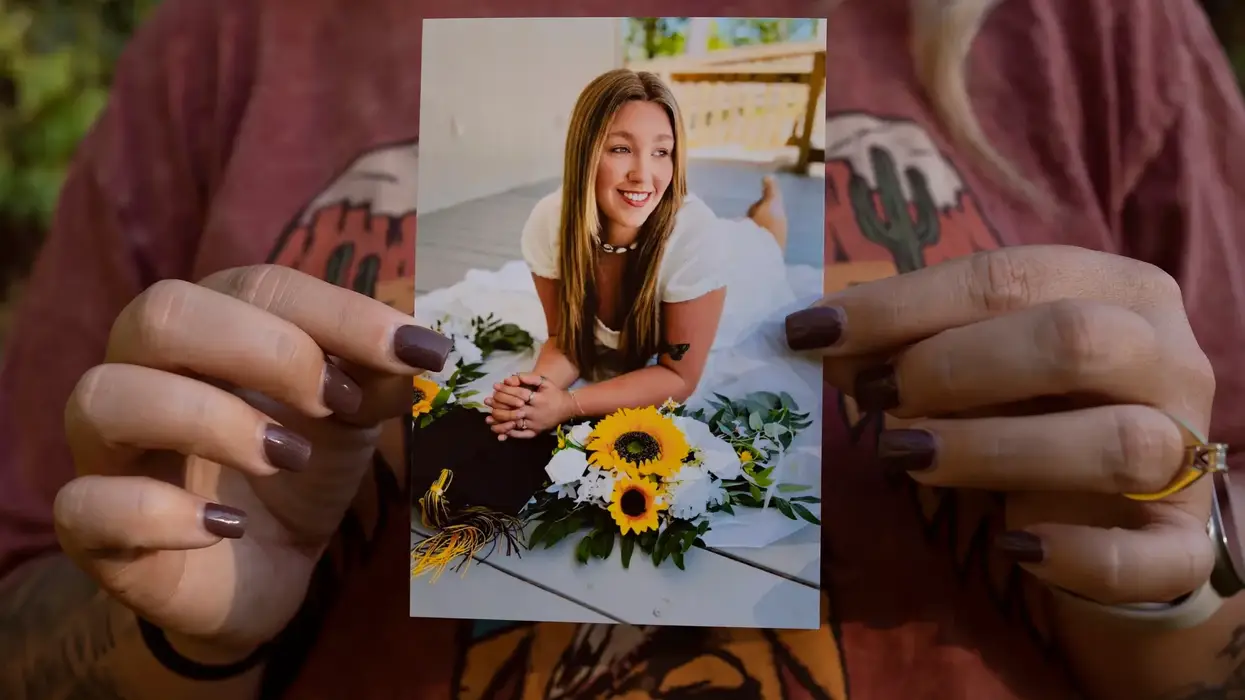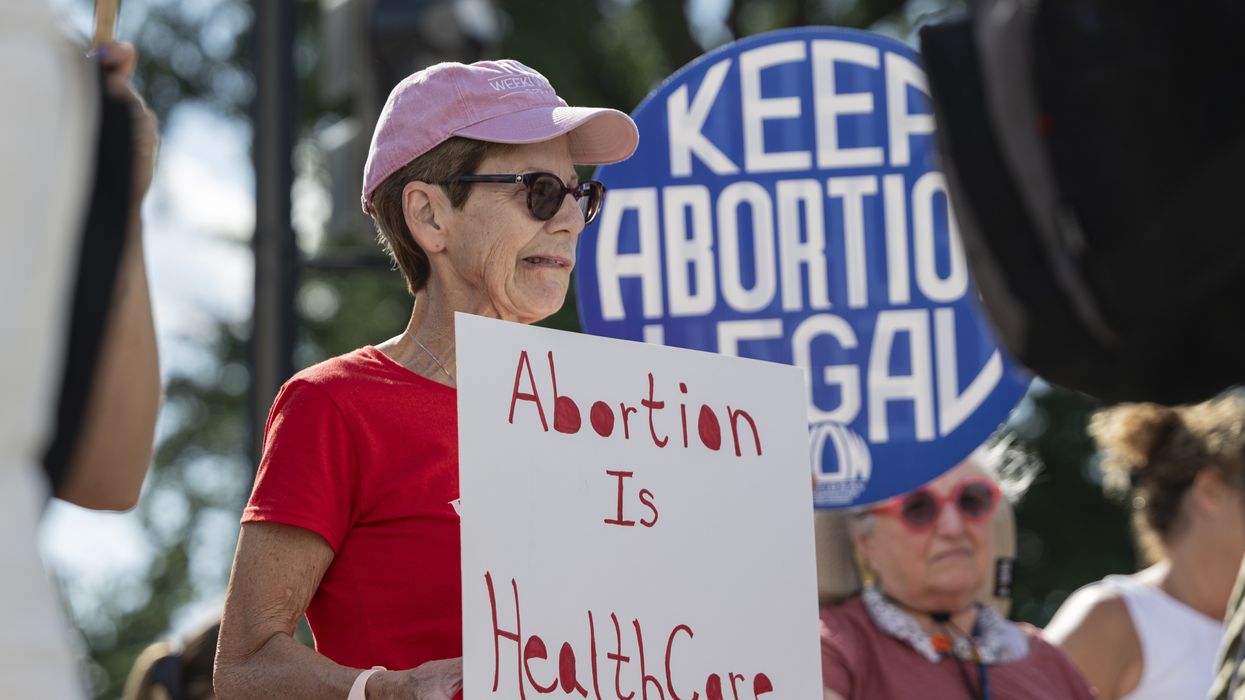'MAGA Abortion Bans Kill Women': Pregnant Texas Teen Dead After Care Denied
"Make no mistake Donald Trump's abortion ban did this," said one reproductive rights leader. "We must stop him."
Nevaeh Crain would have turned 20 on Friday. Instead, she is yet another American woman killed by a Republican abortion ban.
After reporting on Amber Nicole Thurman and Candi Miller, who died because of a Georgia ban enacted in the wake of the U.S. Supreme Court reversing Roe v. Wade in 2022, ProPublica turned to Texas, sharing the stories of Josseli Barnica and Crain, who died at 18 years old last year, having endured a sepsis complication, the miscarriage of a daughter she planned to name Lillian, and delayed medical care.
"On the morning of their baby shower, October 28, 2023, Crain woke with a headache," ProPublica reported Friday. Soon vomiting with a fever, she sought care at two Texas hospitals a total of three times over 20 hours. As the outlet detailed: "On her third trip, a doctor insisted on two ultrasounds to 'confirm fetal demise' before moving her to intensive care. Hours later, Crain died."
As journalists Lizzie Presser and Kavitha Surana explained:
ProPublica condensed more than 800 pages of Crain's medical records into a four-page timeline in consultation with two maternal-fetal medicine specialists; reporters reviewed it with nine doctors, including researchers at prestigious universities, OB-GYNs who regularly handle miscarriages, and experts in emergency medicine and maternal health.
Some said the first ER missed warning signs of infection that deserved attention. All said that the doctor at the second hospital should never have sent Crain home when her signs of sepsis hadn't improved. And when she returned for the third time, all said there was no medical reason to make her wait for two ultrasounds before taking aggressive action to save her.
"This is how these restrictions kill women," said Dr. Dara Kass, a former regional director at the Department of Health and Human Services and an emergency room physician in New York. "It is never just one decision, it's never just one doctor, it's never just one nurse."
Crain and her mother, Candace Fails, "believed abortion was morally wrong," according to ProPublica. "The teen could only support it in the context of rape or life-threatening illness, she used to tell her mother. They didn't care whether the government banned it, just how their Christian faith guided their own actions."
Fails told the reporters that she still thought the doctors were obligated to do everything they could to save Crain, even if it meant losing the pregnancy, but they seemed more concerned with the fetal heartbeat. "I know it sounds selfish, and God knows I would rather have both of them, but if I had to choose," she said, "I would have chosen my daughter."
Although a federal law, the Emergency Medical Treatment and Labor Act (EMTALA), requires emergency departments that accept Medicare to provide patients with "necessary stabilizing treatment," which the Biden-Harris administration argues includes abortions, The Associated Press revealed in August that over 100 patients nationwide have been "turned away or negligently treated since 2022."
Republican officials in multiple states, including Texas Attorney General Ken Paxton, have fought against the Biden-Harris administration's interpretation of EMTALA, and last month the U.S. Supreme Court declined to review a lower court decision barring emergency abortions that violate Texas law.
ProPublica's reporting on Crain's death comes as early voting is underway for the November 5 elections. American voters are set to choose the next president—former Republican President Donald Trump or Democratic Vice President Kamala Harris—and which party controls each chamber of Congress.
Democrats have heavily campaigned on reproductive freedom, highlighting that Trump appointed three of the justices behind the 2022 Dobbs v. Jackson Women's Health Organization decision that ended nationwide abortion rights and he plans to vote against a Florida ballot measure that would outlaw pre-viability abortion bans in the state, where a six-week restriction is now in effect. In September, Harris, a former U.S. senator, endorsed eliminating the filibuster to codify Roe.
The GOP controls the U.S. House of Representatives but Senate Majority Leader Chuck Schumer (D-N.Y.) has held recent votes forcing Republicans to go on record against federal bills that would protect abortion care, birth control, and fertility treatments. Texas Congressman Colin Allred, the Democrat challenging U.S. Sen. Ted Cruz (R-Texas), took note of Crain's story on Friday.
"This is tragic. My heart goes out to Nevaeh's family," Allred said on social media. "Texas doctors can't do their jobs because of Ted Cruz's cruel abortion ban. Cruz even lobbied SCOTUS to allow states to ban life-saving emergency abortions. We can't afford six more years of Ted Cruz."
Others also responded to the new reporting by directing ire at anti-choice Republican officials working to restrict reproductive care.
"This latest story from ProPublica about Nevaeh Crain is gutting," said Cecile Richards, co-founder of Abortion in America and former president of Planned Parenthood. "She was a teenager who should be alive today, and isn't, because of Texas' abortion bans and refusal to provide lifesaving care even in a dire emergency."
Congresswoman Gwen Moore (D-Wis.)—who has publicly shared her own pre-Roe abortion story—declared that "MAGA abortion bans KILL WOMEN."
Center for American Progress' Alex Wall similarly said: "This is sickening. Nevaeh Crain should be alive today. Donald Trump's MAGA abortion bans are killing women."
Mini Timmaraju, president and CEO of Reproductive Freedom for All, which has endorsed Harris, stressed that "these Republican monsters in Texas fought the Biden-Harris administration efforts to protect women like Nevaeh and Josseli."
"There is a special place in hell for Ken Paxton," she continued, calling out the Texas attorney general. "Make no mistake Donald Trump's abortion ban did this. We must stop him."


